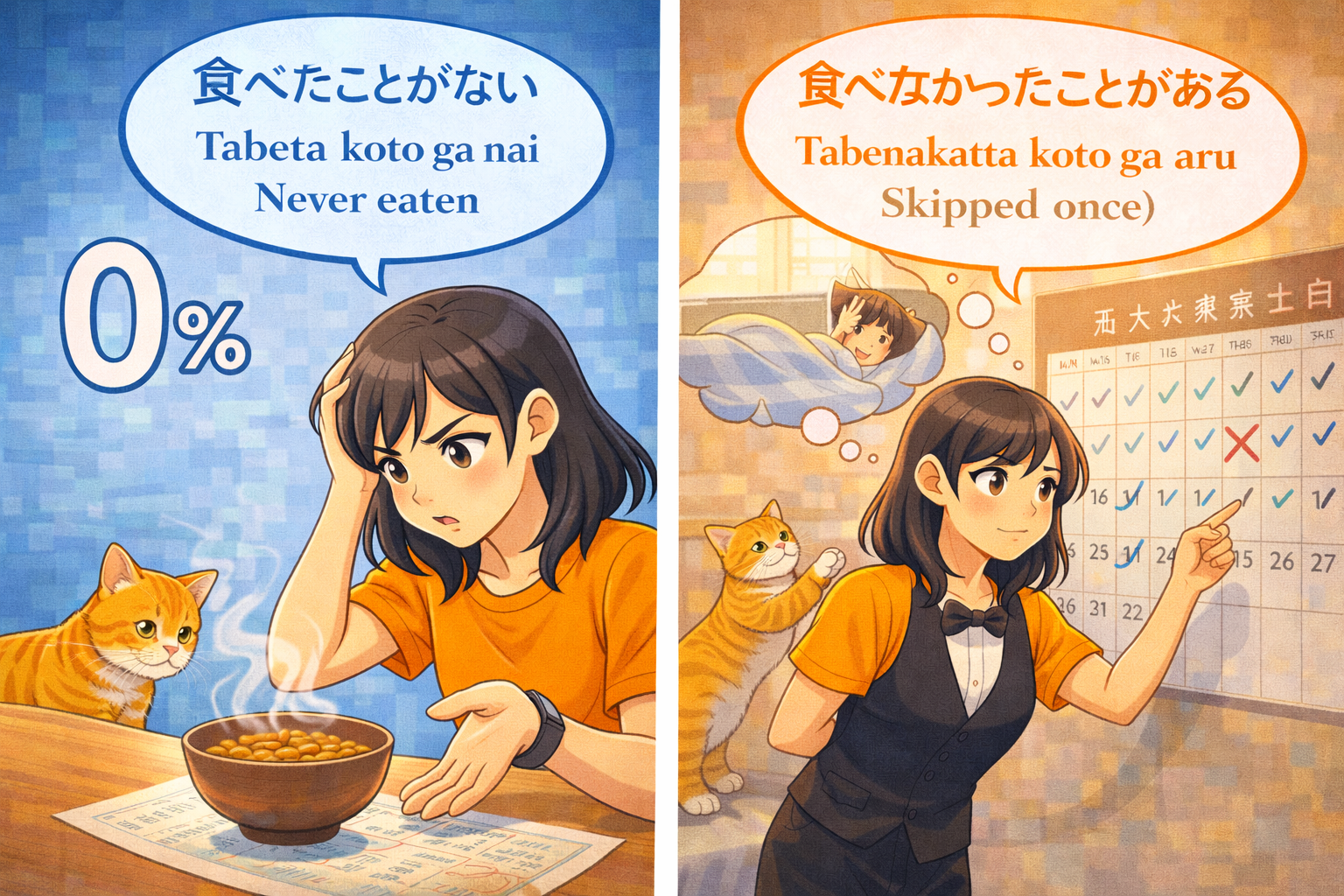
(Joy with zero experience [Tabeta koto nai] vs. Joy remembering one skipped meal [Tabenakatta koto aru])
“I have never eaten breakfast.” (Lifestyle)
“There was a time I didn’t eat breakfast.” (Exception)
These two sentences use similar words but tell a completely different story. One is about Zero Experience, and the other is about a Specific Memory. Let’s solve this puzzle with Joy and Ken!
🗣 Conversation Scene
Joy and Ken are talking about food habits.
私はフィリピン人なので、まだ 食(た)べたことがありません。
(Ken, is Natto delicious? I’m Filipino, so I “have never eaten” it yet.)
僕は毎日食べますが、旅行(りょこう)の時だけ 食(た)べなかったことがあります。
(People either love it or hate it. I eat it every day, but only when I traveled, “there was a time I didn’t eat” it.)
💡 Explanation
Zero Experience vs. A Rare Experience.
Point 1: Tabeta koto ga nai (食べたことがない)
Meaning: I have never eaten it. (Experience = 0)
Grammar: [Ta-form Verb] + koto ga nai.
This means from the time you were born until now, the action has never happened.
- 寿司(すし)を 食べたことがない。
(I have never eaten sushi in my life.) - 日本へ 行ったことがない。
(I have never been to Japan.)
Point 2: Tabenakatta koto ga aru (食べなかったことがある)
Meaning: There was a time I didn’t eat it. (Exception)
Grammar: [Nakatta-form Verb] + koto ga aru.
This implies that you usually do it, but there is a specific memory/experience where you did not do it. It highlights an exception.
- (いつも食べるけど) 一度だけ 食べなかったことがある。
(I usually eat it, but there was one time I didn’t.) - (忙しくて) 寝(ね)なかったことがある。
(I have had the experience of not sleeping [pulling an all-nighter].)
📊 Comparison Table
🚧 Joy’s Mistake
(Joy wants to say she has never been to Osaka)
❌ Wrong: 大阪(おおさか)へ 行かなかったことがあります。
(Meaning: “There was a time/trip where I didn’t go to Osaka.” This implies you usually go, or you had a chance but skipped it.)
✅ Right: 大阪へ 行ったことがありません。
(Meaning: “I have never been to Osaka.” Zero experience.)
🔥 Practice Quiz
Tap to check the answer!




